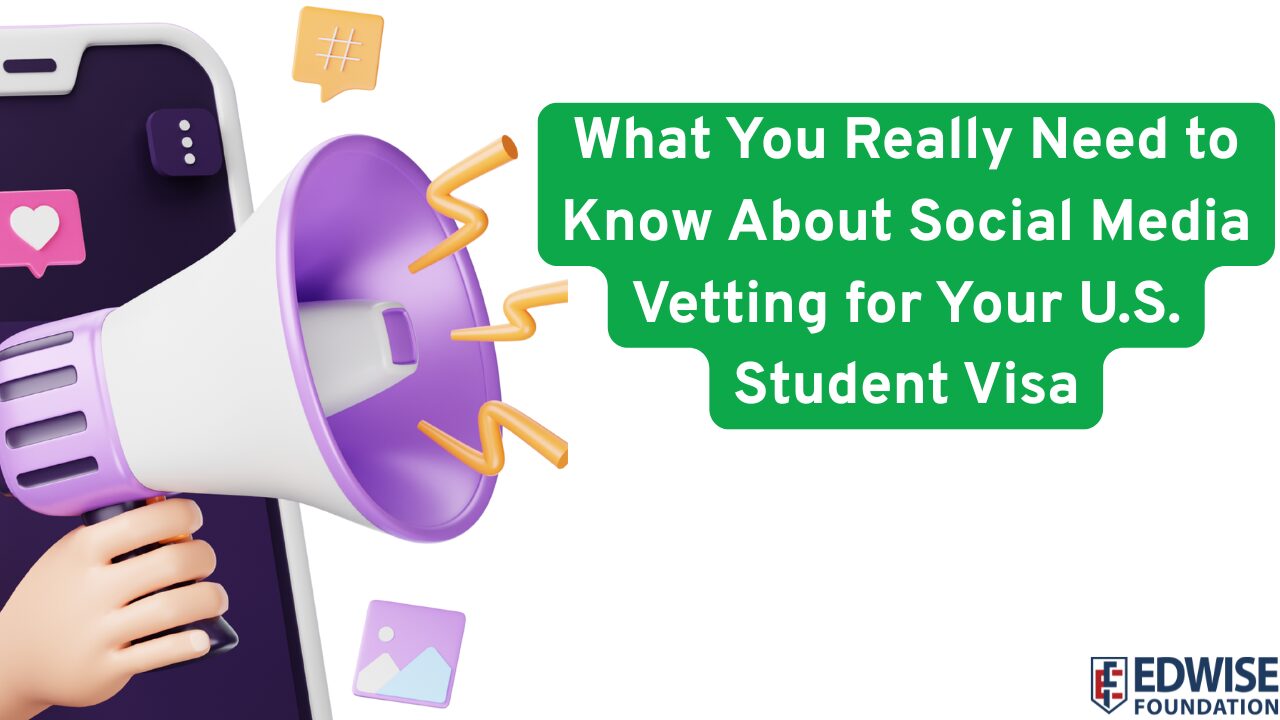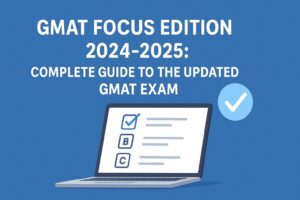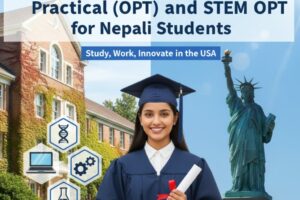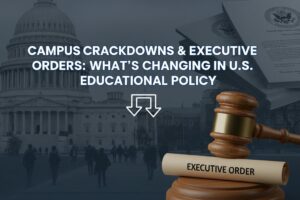What You Really Need to Know About Social Media Vetting for Your U.S. Student Visa
- Posted by Edwise Foundation
- Categories study in USA
- Date June 24, 2025

Planning to study in USA from Nepal? If yes, here’s something new you need to know. The U.S. government has recently made a change in how they process student visas. It’s about your social media.
Since June 18, 2025, students applying for F-1, M-1, and J-1 visas are now required to make their social media accounts public when applying for a visa. This update follows a short pause in appointment scheduling that happened back in May.
What Does “Social Media Vetting” Mean?
Vetting just means checking or looking over something. Here, it means U.S. visa officers will look at your public social media to make sure your identity, education, and what you share online all match up.
They do this to keep the visa process safe and stop any cheating.
They are not trying to hack your accounts or ask for passwords. They’ll only see what any person on the internet can see if your account is public.
They might compare your online details with what you wrote in your visa application and what you talk during the interview. So, if your bio says you’re working as an accountant but your DS-160 form says working as a manager, that could raise questions.
Which Platforms Should You Share?
When you fill out the DS-160 visa form, you’ll be asked to list the platforms you have used in the last five years. Some common ones are:
– Facebook
– Instagram
– LinkedIn
– Twitter (X)
– TikTok
– YouTube
– Snapchat
– Reddit
– Pinterest
– Tumblr
If you don’t use social media, you can just say “None” on the form, but don’t lie. But if you use them, make sure to mention about all the social media accounts and make your profile to public viewing until your visa process is done.
What did the U.S. Government Say?
Here’s what was shared officially:
“On May 27, 2025, the U.S. Department of State paused new student visa appointments to strengthen the screening process. Starting June 18, 2025, bookings reopened with a requirement for public social media profiles.”
This rule is for everyone, no matter which country you are from, even students from Nepal. It is not here to scare you. It is simply to make sure the visa process stays honest and safe for all.
Why This Matters?
If your social media profile is private, it might raise questions during your interview. You can still book an appointment, but during the interview, officers may check your public profile. Sometimes, your visa process can get delayed or even rejected if something on your profile looks wrong, confusing or incomplete. That is why it is a good idea to check your social media and make sure it matches what you wrote on your DS-160 form.
What Should You Avoid Posting?
When you go through your social media, look carefully for things like this:
– Posts supporting terrorism or violent groups
– Antisemitic content (hate against Jewish people)
– Racist or religious hate speech
– Jokes or memes that promote violence or crime
– Fake educational or job claims
– Political content that encourages extreme views
– Content that feels inconsistent with your visa purpose
Even something that seemed harmless years ago could now affect your application. So go through your old posts carefully.
Simple Ways to Prepare Your Social Media
These are a few simple things you can do:
– Use your real name and a clear profile picture
– Make the main platforms you use public for the time being
– Clean up anything that looks negative, violent, or dishonest
– Double-check that your bio, city, school, and work info are correct
– Avoid deleting everything suddenly, just make it honest and simple
If you’re unsure, ask your counselor here at Edwise Foundation to help you review it.
What Can Happen If You Don’t Follow This?
– Your visa appointment might not go through
– You could be asked for extra documents or undergo longer screening
– Worst case, your visa could be refused
Don’t worry. If you have been honest and respectful on your social media, you should be fine.
FAQ’s
No. They only see what’s public. Never share your passwords.
That’s okay. Just say “None” when asked. No problem.
Yes, once the visa process is complete, you can change it back.
Not necessarily, but avoid deleting everything at once. Just clean up anything clearly inappropriate.
No. It’s part of their silent background checks. You won’t get a message.
Final Advice: Be Real and Stay Ready
This new rule is something all students need to take seriously, but you don’t need to be scared. If you are honest, have nothing to hide, and truly want to study in the U.S., this won’t stop you.
Edwise Foundation is your dedicated abroad education partner. We are more than an education consultancy; we're your route to international education. We have a long history of guiding ambitious young minds. Our extensive experience in counseling abroad studies and smooth application processing makes it easier for students to achieve their academic goals.
f i y t n
Next post


